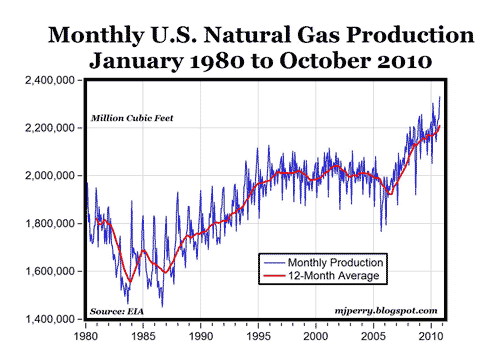BBC News – The world may have twice as much natural gas than previously thought, according to the rich nations’ think tank the International Energy Agency (IEA). The world may have 250 years of gas usage at current levels thanks to “unconventional gas” from shale and coal beds, Anne-Sophie Corbeau, senior gas expert at the IEA told BBC News. Estimates may even be revised upwards.
Studies are underway into newly-recoverable sources, Ms. Corbeau said. “The gas story is huge. A few years ago the United States was ready to import gas. In 2009 it had become the world’s biggest gas producer. This is phenomenal, unbelievable.”
The US achieved the change through a technological breakthrough in which firms found a way of using tiny explosions to free gas previously trapped in a common rock – shale. Miss Corbeau said other nations were now rushing to replicate the U.S. success by exploiting gas currently trapped in various types of rock where it was thought to be impossible to access.”

MP: The chart above shows monthly natural gas production in the U.S., which just set a new all-time record high in October last year.
- Bulenox: Get 45% to 91% OFF ... Use Discount Code: UNO
- Risk Our Money Not Yours | Get 50% to 90% OFF ... Use Discount Code: MMBVBKSM
Disclaimer: This page contains affiliate links. If you choose to make a purchase after clicking a link, we may receive a commission at no additional cost to you. Thank you for your support!


Leave a Reply